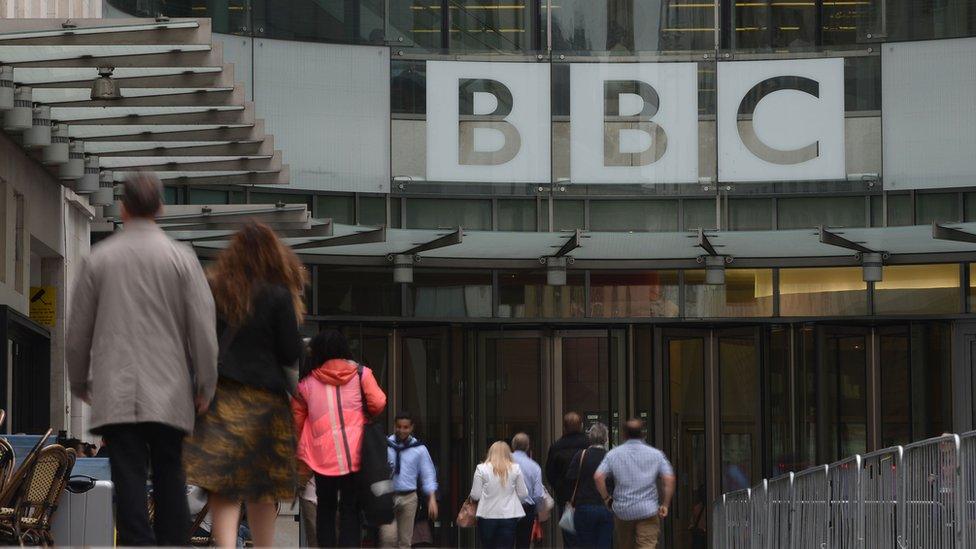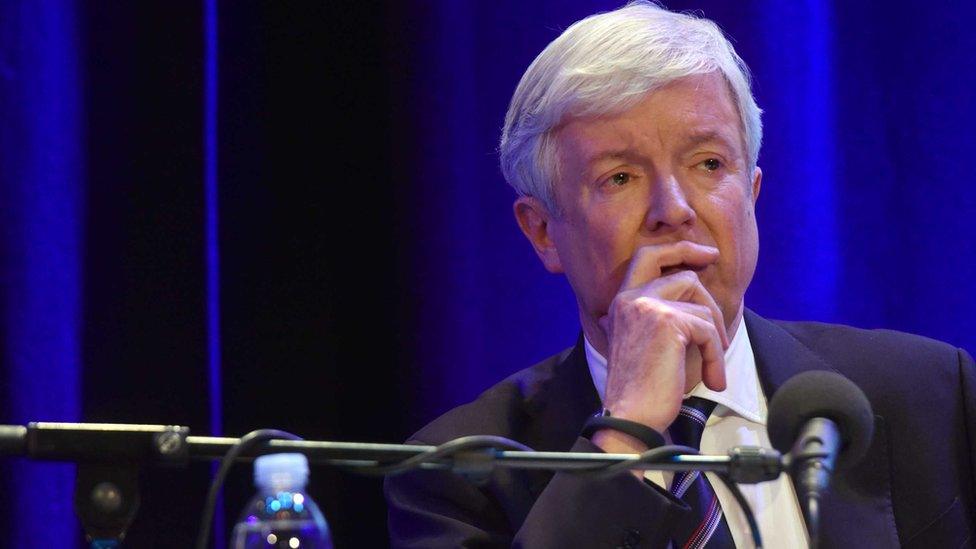BBC sees 'spike' in sexual harassment complaints
- Published

Not all cases are thought to relate to current BBC staff
The BBC has said it is dealing with a "spike" in complaints of sexual harassment.
The deputy director general told MPs there had been a recent increase in the number of cases after the BBC encouraged staff to come forward.
Anne Bulford said the corporation is currently investigating 25 individuals for alleged sexual harassment.
Last year only three cases were investigated, with just one case in each of the two years before that.
In a statement, the BBC said: "Since the Harvey Weinstein revelations, we've been actively encouraging staff to come forward with any concerns.
"We hope other employers are doing the same, and when allegations are made, we have well-established processes to investigate."

Director general Tony Hall said there is a zero tolerance approach to sexual harassment
Anne Bulford told the House of Commons Digital, Culture, Media and Sport Select Committee that the BBC is looking into "25 live cases".
However, not all are thought to relate to current staff. A number of the allegations are believed to be historic, involving people who have worked for the BBC or for third parties associated with the BBC in the past.
The deputy director general said: "We have to continue to encourage people to speak. Whether they're current or whether they're historic in relation to sexual harassment, the important thing is people come forward."
Ms Bulford also confirmed that issues raised by staff working with independent production companies and third party suppliers would be supported by the BBC's confidential helpline, which was set up in the wake of the Jimmy Savile scandal.
Director general Tony Hall commented: "As far as harassment, bullying and... sexual harassment goes, we should have zero tolerance. That means making it as easy as possible to do the very difficult thing of coming forwards and calling out behaviour."
Asked how many staff were currently suspended pending an investigation into sexual harassment, the BBC responded: "We can't comment on individuals but treat any allegations seriously and have processes in place for investigating them."

Follow us on Facebook, external, on Twitter @BBCNewsEnts, external, or on Instagram at bbcnewsents, external. If you have a story suggestion email entertainment.news@bbc.co.uk.
- Published16 October 2017
